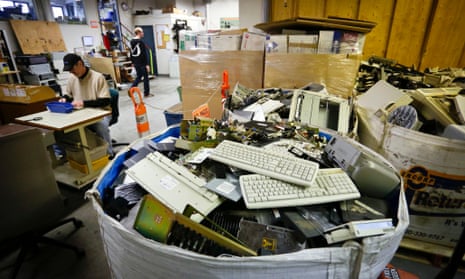Dell is blazing a trail towards the circular economy – where waste materials are continuously restored to use – by sourcing recycled plastic for new products, closing the loop on electronic waste and forging ahead with ambitious packaging innovations.
Through its “legacy of good” programme, the technology giant has ambitious plans to cut waste, create more eco-friendly products and inspire its stakeholders to adopt “circular” thinking.
In particular, it plans to use 50m pounds (22.7m kg) of recycled plastic and other sustainable materials by 2020, create 100% recyclable or compostable packaging, and recover 2bn pounds of electronic waste.
In 2014, Dell sourced 4.5m kilos of recycled plastic to build monitors and desktops. It also began capturing waste materials from customers’ old computers to incorporate in new products.
People in 78 countries are already taking advantage of its free take-back programme to recycle end-of-life electronics, with 560m kilos of e-waste recycled so far. Now, the company is transforming some of the collected plastic waste into new materials for its OptiPlex 3030 desktop computer, creating the industry’s first certified “closed loop” recycling system.
Elsewhere, Dell eliminated 20m pounds of packaging between 2008 and 2012, generating more than $18m (£12.3m) in cost savings. Its intention to reduce packaging waste has seen the company replacing non-biodegradable, oil-based materials with organic alternatives such as bamboo and mushrooms. Its wheat straw packaging uses 40% less energy and 90% less water than traditional paper-based cardboard.
As part of its effort to encourage others to see waste as a valuable resource, Dell formed a partnership with the United Nations Industrial Development Organisation to collaborate on developing recycling models for e-waste in developing countries.
This builds on its work to empower people in Kenya to generate additional income by collecting e-waste, and a roadmap it created for other organisations to prosper by recycling waste.
